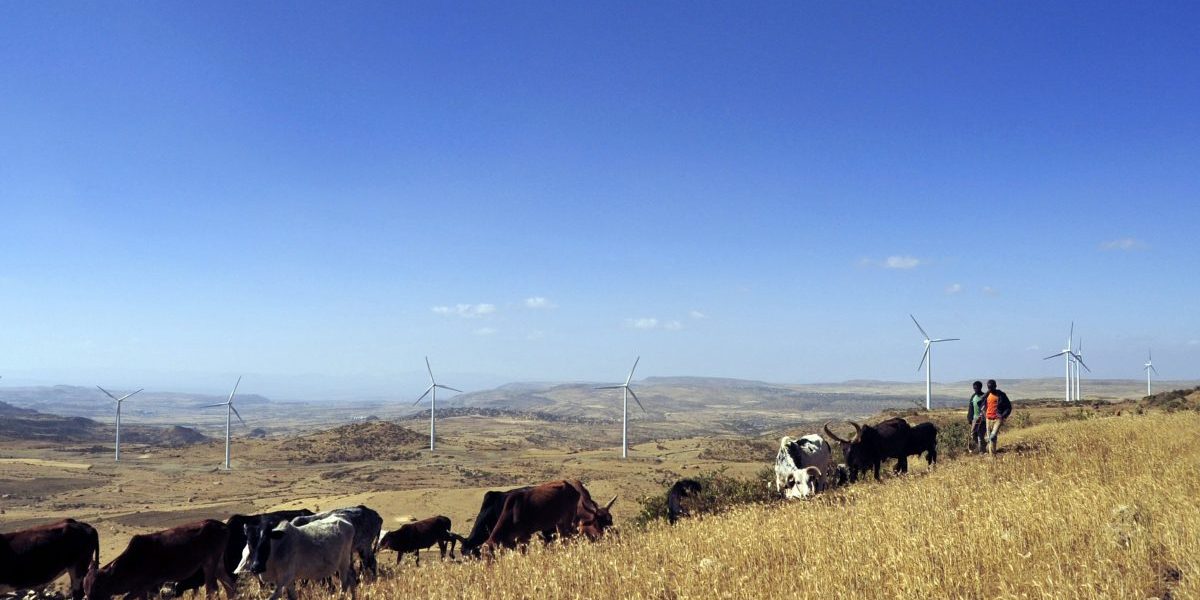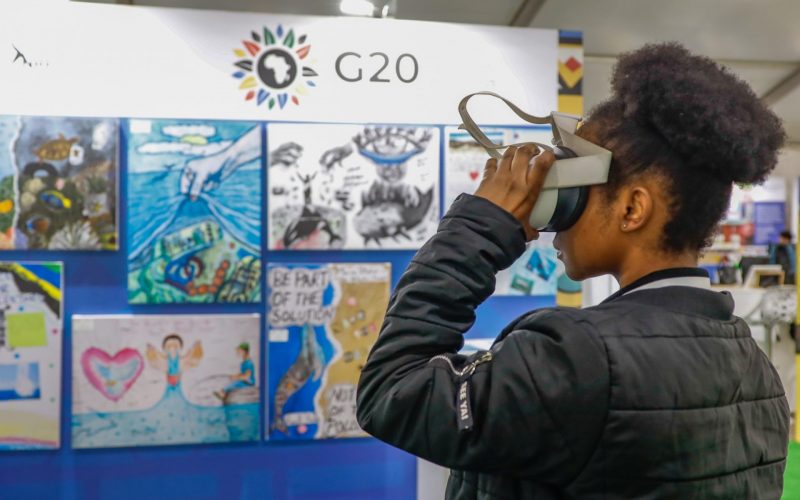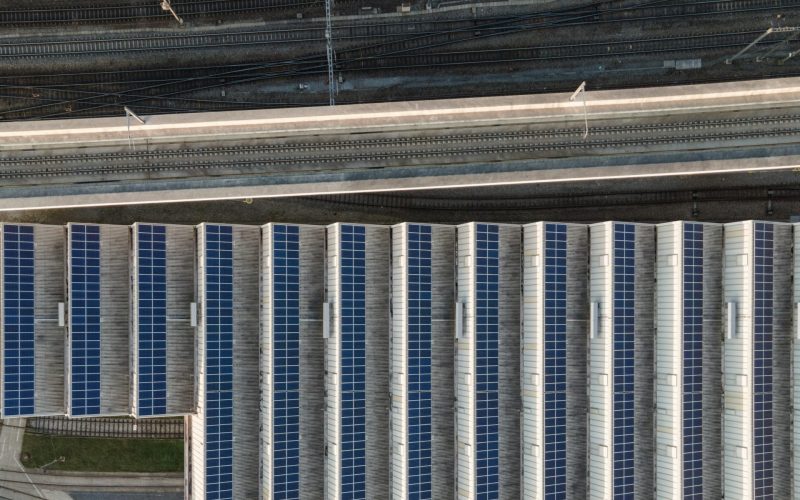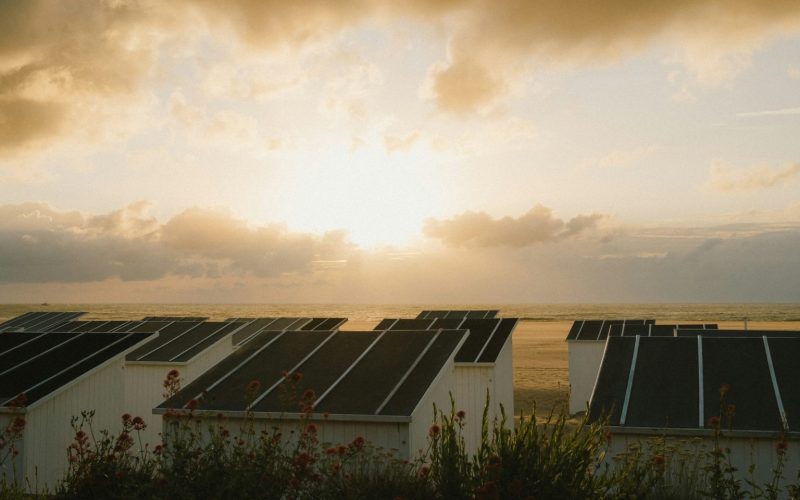Recommendations:
- Combining auction instruments, feed-in tariffs, and green funds with green industrial policies and cross-cutting socio-economic policies is an effective policy mix for managing energy transitions in line with greater energy justice. Therefore, energy justice criteria should be included as elements of the AU-EU strategy’s action plan.
- While the bankability of renewable energy projects becomes prioritised, development policy norms run the risk of being sidelined through on overemphasis on investment and bankability of renewable energy projects. To avoid this, African-European development cooperation should tie its de-risking policies to cross-cutting policies in line with the justice dimension.
- African-European cooperation should particularly engage regional development partners such as ECOWAS, the ECOWAS Centre for Renewable Energy and Energy Efficiency, and SADC, so as to support African political leadership and enhance national and regional ownership of energy transition processes.
- African-European cooperation should foster and facilitate policy learning from African good practice cases and should offer capacity building, especially for those states that still find themselves on a fossil fuel-based energy pathway.
Executive summary
To shed light on the course of African energy transition processes, this policy brief provides evidence from a comparative analysis of 34 African countries. We present a clear picture of promising policy frameworks and fruitful attempts to realise a higher level of energy justice. South Africa, Rwanda, Kenya, Mauritius, Ethiopia and Egypt may serve as good practice examples for other states currently aiming at a systemic energy transition. Our recommendations for AU-EU cooperation on renewables and a green economy bring in suggestions for further fostering this green paradigm shift through means of consultancy, capacity building and strategies for technology transfer.
Introduction
Renewable energy is rapidly expanding on the African continent. Propelled by Sustainable Development Goal (SDG) 7, which targets fair and reliable access to clean energy, many African states have introduced renewable energy legislation and policy instruments. Their design, as well as their application and efficiency, vary considerably. Yet despite these promising developments, not much is known about these processes as comparative studies on African energy transitions are few and far between.
To shed light on the course of African energy transition processes, this policy brief provides evidence from a comparative analysis of 34 African countries.1Franziska Müller et al., ‘Is green a pan-African colour: Mapping African renewable energy policies and transitions in 34 countries,’ Energy Research and Social Science 68 (2020): 1-9.We present a clear picture of promising policy frameworks and fruitful attempts to realise a higher level of energy justice.2Kirsten Jenkins et al., ‘Energy justice: A conceptual review,’ Energy Research and Social Science 11 (2016): 174–182.We identified a group of states which have adopted comprehensive policy frameworks that consider the justice dimension. In this regard, South Africa, Rwanda, Kenya, Mauritius, Ethiopia and Egypt may serve as good practice examples for other states currently aiming at a systemic energy transition. Our recommendations for AfricanEuropean cooperation on renewables and a green economy bring in suggestions for further fostering this green paradigm shift by means of political engagement, capacity building and technology transfer.
Green Innovations: The scope and direction of African energy transition policies
To classify scope and direction of energy policies, we refer to the International Renewable Energy Agency’s distinction between direct, enabling and integrative policies.3
International Renewable Energy Agency (IRENA), International Energy Agency (IEA) and Renewable Energy Policy Network for the 21st Century (REN21), Renewable Energy Policies in a Time of Transition (IRENA, IEA, REN21, 2018), https://www.irena.org//media/Files/IRENA/Agency/Publication/2018/Apr/IRENA_IEA_REN21_Policies_2018.pdf. ‘Direct policies’ refer to very concrete changes within a limited policy environment, such as subsidies or tax reductions. On the African continent, several states rely solely on direct policies, for instance Botswana, Gambia and Togo.4Franziska Müller et al., ‘AFRO_ENERGYPOL Database of African Renewable Energy Policies’, Mendeley Data (2020), https://data.mendeley.com/datasets/grhystdwdr/1.Reasons for this often lie in limited state capacity to push broader policy reform packages. Also, in densely populated countries more immediate needs, such as setting up grid infrastructure, are prioritised over a more systemic transformation. While ‘direct policies’ initiate energy transitions, some states seek to consolidate and streamline these processes by implementing broader policy frameworks. ‘Integrative policies’ foster the integration of renewables into the energy system by aiming at cornerstones such as grid infrastructure, feed-in tariffs or biofuel blending mandates. We could identify such integrative policy frameworks for instance in Algeria, Kenya, Rwanda or Uganda.5Müller et al., “AFRO_ENERGYPOL”.Lastly, ‘enabling policies’ strive for transformative change, for instance through awareness-raising, energy access programmes, educational initiatives and green industrial policies that seek to transform production processes and to establish green jobs. Indeed, several states have introduced enabling policies that form part of larger policy frameworks. Such approaches are typically informed by an understanding of energy transitions as a cross-cutting transformation with particular regard to the economic, socioecological and educational dimensions of renewable energy.
One example of an enabling policy framework is Rwanda’s National Energy Strategy.6Government of Rwanda, Rwanda Ministry of Infrastructure, National Energy Policy and National Energy Strategy 2008–2012, (Kigali: Ministry of Treasury, 2009), http://www.eueipdf.org/sites/default/files/field_publication_file/EUEI_PDF_Rwanda_Energy_Policy_2008-2012_Final_Jan_2009_EN.pdf.It combines integrative and enabling policies by aiming to change consumers’ behaviour. The strategy promotes the diversification of energy sources and includes schemes for reducing energy consumption, energy audits for industries, and grid extension. Its instruments include microfinance options, clean cooking programmes and biofuel blending in the transport sector, but also long-term strategies such as support for research and development and capacity building programmes, including a focus on developing more female expertise in renewable energy technology.
Overall, many African countries that are progressing towards energy transitions tend to rely on common policy approaches that support foreign direct investment and rely on feed-in tariffs 7African countries with a feed-in tariff include Algeria, Egypt, Ghana, Kenya, Mauritius, Namibia, Nigeria, Rwanda, Senegal, South Africa, Tanzania, Uganda, Zambia and Zimbabwe. See: Müller et al., “AFRO_ENERGYPOL”; and REN21, Renewables 2018, Global Status Report (Paris: REN21, 2018), https://www.ren21.net/wp-content/uploads/2019/08/Full-Report-2018.pdf., de-risking and auction instruments 8So far there are 29 countries worldwide with auction instruments, with Zambia, Madagascar, Ethiopia, Rwanda, South Africa, Burkina Faso, Senegal, Kenya, Algeria, Mauritius, Cape Verde, Côte d’Ivoire, Egypt, Lesotho, Uganda, Malawi, Nigeria and Morocco on the African continent. See: Franziska Müller et al., “AFRO_ENERGYPOL”; David Otieno et al., Mapping of Energy Initiatives and Programs in Africa, Final Report (Eschborn: EU Energy Initiative Partnership Dialogue Facility, 2016); and Rainer Quitzow et al., ‘The Future of Africa’s Energy Supply. Potentials and Development Options for Renewable Energy’ (Institute for Advanced Sustainability Studies, Potsdam, 2016).to carve out space for private sector investment in a landscape thus far dominated by state-owned utilities (as is the case, for example, in South Africa and Zambia). Auction instruments include a tendering process with competitive bidding and a scoring based on least-cost pricing, sometimes complemented by local content requirements, employment of local personnel and local shareholding. De-risking instruments foster investment by shifting risks that may adversely affect investors’ behaviour. They find application in countries which have large untapped potential for renewable energy generation, yet are considered risky destinations for green capital.9Oliver Waissbein et al., Derisking renewable energy investment (New York: UN Development Programme, 2013).As the most prominent example, the Global Energy Transfer Feed-in Tariff (GETFiT) – designed by Germany’s Kreditanstalt für Wiederaufbau – mitigates investment risks in renewable energy sectors. Currently operating in Uganda and Zambia, GETFiT also seeks to emulate its practice in energy markets in Ghana, Namibia, Malawi and Mozambique.
In summary, our sample indicates a strategic shift towards a policy mix that privileges a market-oriented transition regime aimed at unbundling monopolies, fostering transparency and encouraging competition among independent power producers.
Energy justice: Do African renewable energy policies cover the justice dimension?
The current course of renewable energy transitions indicates a reliance on market-based policies, yet the degree of market orientation varies. It is in this light that we ask to what extent these overarching trends and the individual policy frameworks are also able to contribute to greater energy justice.
In terms of ‘distributive justice’, questions of access to and affordability of renewable energy are relevant. The turn towards more comprehensive policy frameworks clearly bears the potential to address justice-related qualities of renewable energy policies, indicated for instance by training and capacity building programmes, rural electrification as well as pricing schemes that tackle energy poverty. Overall, we found many examples of policy frameworks that address this dimension, mostly through direct policies that target individual consumers, or through integrative and enabling policies that aim at systemic change, for instance with the help of rural electrification or grid integration.
Distributive energy justice is therefore closely aligned with genuine development goals, such as problematising and targeting energy poverty. The policy frameworks in Ethiopia, Namibia and Zambia showcase typical policies that consider the distributive dimension.10Müller et al., “AFRO_ENERGYPOL”.Zambia’s ‘Beyond the Grid Fund’ 11Beyond the Grid Fund for Zambia, https://www.bgfz.org/.is a rare example of a market-based policy that considers distributive justice by providing access to energy in particularly remote regions. Also, South Africa’s auction instrument REI4P (Renewable Energy Independent Power Producer Procurement Programme12IEA/IRENA, ‘Renewable Energy Independent Power Producer Procurement Programme’, https://www.iea.org/policies/5393-renewable-energy-independent-power-producer-programme-reippp.) is worth noting due to the socio-economic commitments investors need to fulfil in order to be shortlisted.
‘Recognitional justice’ addresses actors that are disproportionally affected by energy poverty, particularly women, chronically ill and disabled people, extremely poor people, refugees, as well as rural populations. Several countries have introduced legislation that considers recognitional justice by means of rural electrification, women’s empowerment or tariff schemes. One example is Mauritius’ ‘Long Term Energy Strategy 2009-2025’,13Republic of Mauritius, Ministry of Renewable Energy and Public Utilities, Long-Term Energy Strategy 2009-2025 (Port Louis, Ministry of Renewable Energy and Public Utilities, 2009, https://sustainabledevelopment.un.org/content/documents/1245mauritiusEnergy%20Strategy.pdfwhere energy is understood as a justice-related and cross-cutting issue, as demonstrated by gender-sensitive energy policies that facilitate energy access for women through microcredit systems, grassroots partnerships, and payment schemes that allow for irregular income flows.
‘Procedural justice’ points to questions of participation and articulation, as well as to an awareness for renewable energy’s democratising potentials within transition processes. According to our sample, there is almost no evidence of energy policies that actively contribute to better procedural justice. South Africa represents one exception in our sample, whereby public consultation processes are pursued prior to project implementation.
Key findings
Our comparative analysis provides evidence on Africa’s green transition endeavours and can be summarised in three key findings:
- Several countries have developed policy frameworks that demonstrate a clear commitment towards energy justice. This is the case in Egypt, Ethiopia, Mauritius, Namibia, Rwanda, South Africa and Uganda, whose policy frameworks combine direct, integrative and enabling energy policies, which address the recognitional and distributive justice dimensions. The two common features of these countries are strong stakeholder arrangements involving governments, donors, the citizenry and transnational actors, and strong domestic ownership of policy reforms.
- In some cases, renewable energy policy frameworks are inadequately linked to questions of energy justice. In Algeria and Morocco, for example, policymakers put their faith in trickle-down effects by heavily relying on market forces to expand their energy sector. At the same time, the policies in question do not address justice-related issues at all. The risk of an over-reliance on market forces is that it may undermine the goal of energy access for all, as outlined in the SDGs.
- Lastly, several countries are still affected by strong path dependencies (as is the case for Nigeria and Angola) or single-issue policies (as is the case for Botswana and Togo), which severely limits their capability to embark on a green transition.
These empirical results are highly relevant for designing adequate and case-sensitive strategies for policy engagement and capacity building, with the aim of realising comprehensive energy policy frameworks in line with SDG 7.
Towards African energy justice: Recommendations for African-European cooperation
Our analysis provides important information for African-European cooperation and for capacity building at the energy/development nexus. Against the backdrop of the European Consensus on Development14Joint Statement by the Council and the Representatives of the Governments of the Member States Meeting Within the Council, The European Parliament and the European Commission, ‘New European Consensus on Development: ‘Our World, Our Dignity, Our Future,’ (June 26, 2017), https://ec.europa.eu/europeaid/sites/devco/files/european-consensus-on-development-final-20170626_en.pdf.and the development of a new AU-EU strategy that fosters Africa’s energy transitions, we recommend that energy justice be mainstreamed within energy policy frameworks. Combining auction instruments, feed-in tariffs, and green funds with green industrial policies and cross-cutting socio-economic policies (education, training, technology transfer) represents an effective policy mix for managing energy transitions in line with greater energy justice, as demonstrated by policy frameworks in South Africa, Ethiopia, Kenya and Mauritius. To deepen African-European cooperation at the energy/development nexus, we recommend that energy justice criteria, green industrial policies, and the creation of decent jobs are prioritised and should be included as elements of the AU-EU strategy’s action plan.
Our assessment of Africa’s energy transitions highlights the risk that development policy norms can be side-lined in favour of an emphasis on attracting investments and ensuring the bankability of renewable energy projects. Replacing cross-cutting policies with purely market-based policies can exacerbate this tendency. Foreign direct investment, which offers easy access to capital, should not be pursued at the cost of domestic socio-economic development. African-European development cooperation should tie its de risking policies to cross-cutting policies in line with the justice dimension, particularly in relation to states that either remain on a fossil fuel pathway or have only adopted direct policies, but lack a systemic perspective.
To support legitimacy of policy reform programmes, domestic ownership is crucial, and therefore better alignment is needed in managing energy transitions. Alignment can be strengthened by ever closer collaboration between government institutions and development partners. African-European cooperation should particularly engage regional development partners such as ECOWAS, ECREEE (ECOWAS Centre for Renewable Energy and Energy Efficiency) and SADC, so as to support African political leadership.
Finally, we recommend that policy learning is actively fostered as a capacity building strategy. As a key strategic ingredient to successful transition processes, African-European development cooperation should foster and facilitate policy learning from Africa’s good practice examples and offer capacity building, especially for those states who still find themselves on a fossil fuel-based energy pathway.
Acknowledgement
This policy briefing has been published as part of a series under the project Partnership for a Green Transition and Energy Access: Strategic priorities for Africa and Europe. The project is a partnership between SAIIA and the Konrad Adenauer Stiftung’s Regional Programme on Energy Security and Climate Change in Sub-Saharan Africa.








